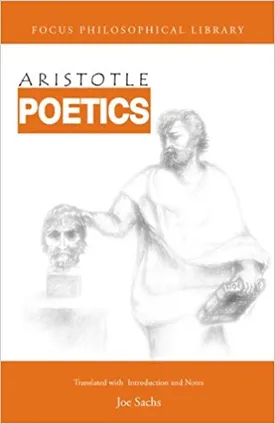Poetics by Aristotle is one of the most influential pieces of work in the world of literary analysis. Written during his stay in ancient Greece, Poetics is the only surviving work by Aristotle on the subject of aesthetic theory. In it, Aristotle lays out a framework of rules and standards intended to guide literary writers, scholars, and critics in their approach to different forms of art.
At its core, Poetics is a prescriptive guide to appreciating literature. In it, Aristotle identifies six main components that should be taken into consideration when assessing a piece of literature. These six criteria, which he calls the "Six Parts of a Poem," are plot, character, thought, diction, music, and spectacle. For Aristotle, these elements resonated heavily with Greek culture and philosophy, as they were deeply embedded in the culture and everyday life of the Greeks.
The first of the Six Parts of a Poem is plot, which Aristotle believed to be the most important element when it comes to assessing literature. He argued that the plot of any given piece should be unified and contain a set structure to stand the test of time. To ensure the plot is unified, he argued that it should contain conflict, a climax, and then a resolution of the conflict. This structure gave readers an easy way to follow the literary work from start to finish.
The second part of the Six Parts of a Poem is character. For Aristotle, it was important that characters in any given piece of literature should have consistent personalities and should develop throughout the story. Characters should be three-dimensional, with strengths and flaws that the reader can relate to and understand. This makes for a more immersive experience for the reader.
The third part of the Six Parts of a Poem is thought. According to Aristotle, thought is the most important element of any poem or piece of literature. The ideas, themes, and messages that a piece of literature communicates must be carefully crafted and thought-out in order to be appreciated and remembered by readers. These ideas and themes should be presented consistently throughout the work and should progress as the narrative develops.
The next three Parts of a Poem are diction, music, and spectacle. Aristotle believed that the choice and quality of language used in writing must be carefully weighed in order to convey meaning effectively. He also argued that music played a vital role in the poetic experience, carrying emotion and thought throughout the work. Last but not least, spectacle was essential to drawing readers into the world of the poem, adding a multi-dimensional experience to the reader.
In Poetics, Aristotle laid down the standards by which all works of literature for centuries to come would be judged. Although some aspects of the way we approach literature may have changed over time, the core ideas of plot, character, thought, diction, music, and spectacle still remain at the heart of every successful work of literature. For this reason, Poetics by Aristotle remains as one of the most important and influential works in literary analysis, and serves as an essential reference for any student of literature.

